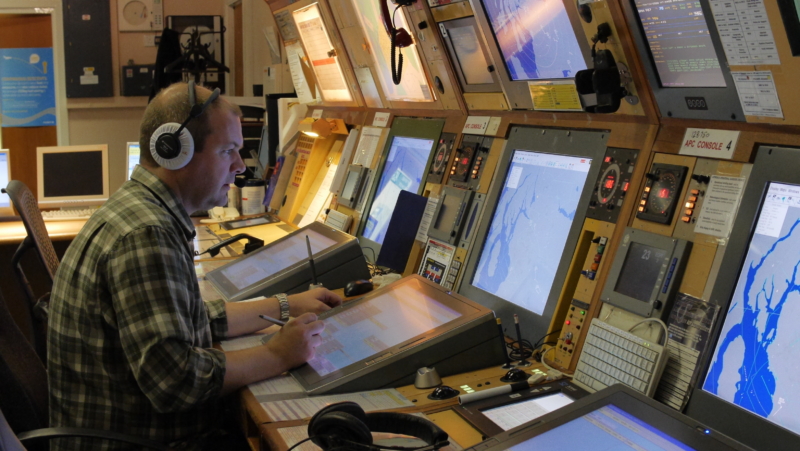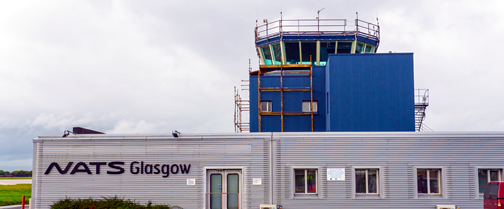Sports, athletes and …. air traffic control
23 July 2014It is Day 1 of the Commonwealth Games today, and Glasgow is centre stage.
As with any large spectacle such as this, NATS is heavily involved in the planning and execution of safe and efficient air travel for the duration of the event. I recently wrote about the preparations going on behind the scenes for The Scotsman and thought I would share the content of that editorial with you too. Here it is….
The Commonwealth Games is finally here and all eyes are now on Glasgow as the city hosts the third largest multi-sport event in the world.
When you think of the Games, you think of the athletes and the various sporting disciplines. However, at NATS, and particularly at our control centre in Prestwick and Scottish airport towers, we think of air traffic and airspace, and how the Games may affect operations.

We’ve been planning for the Games for two years, including taking into account lessons learnt from managing the Olympics, and even though we now know that there will not be a significant increase in the number of aircraft flying into and out from Glasgow or any airspace changes in Scottish airspace that impact upon commercial aviation, we are still responsible for delivering a Games devoid of air traffic related incidents or delays and maintaining a safe, efficient, and uninterrupted business as usual service for airline customers.
As Operational Performance Manager at the NATS control centre in Prestwick, it is my responsibility to offer the best possible service to our customers, whilst balancing all the conflicting demands on our airspace. Given the huge importance of the Games and the fact that they are being held at our busiest time of the year – in the middle of the school holidays – we want to be sure that the Games pass off with no impact on airlines going about their normal business or passengers inbound to the event themselves.
Our preparations started in 2012, but the last 12 months have been particularly busy. A feasibility study in early 2013, determined NATS requirements for the Games period and identified predicted traffic levels and security requirements to establish if changes to procedures and/or airspace would be needed. A lead time of over a year is necessary as any changes to airspace need to be approved by the CAA, our regulator, and fully tested prior to implementation.

We have been working closely with both Glasgow and Edinburgh airports and piecing our various studies together, have come up with a proportionate plan of action that has been agreed by us at Prestwick Control Centre and Glasgow Airport, one of 15 airports in the UK where we manage air traffic every day.
The safety and security of the Commonwealth Games are of course the government’s highest priorities and to ensure the authorities have the flexibility to carry out airborne security procedures while NATS moves high volumes of air traffic through Scottish airspace, close coordination between NATS, Police Scotland and the Ministry of Defence has been, and will continue to be, vital.
Airspace restrictions have been put in place over Glasgow by the CAA, with two zones identified and classified as ‘prohibited’ and ‘restricted’. Commercial passenger flights to Glasgow and Edinburgh airports will not be affected, however our controllers need to be aware of these constraints and manage the aviation traffic using the neighbouring airspace.

Therefore, all controllers who are validated to operate that particular piece of airspace have undertaken additional simulator runs to increase their readiness to deal with unusual, challenging or busier than normal traffic levels. And we have had to brief all other operational controllers as well; the airspace is so interlinked, everyone needs to be aware of the prohibited and restricted zones to ensure minimal disruption.
Because of the importance of the Games to NATS, we have communicated across our entire company, not only Scottish operations, to ensure that everyone is aware of the procedures in place for the Games period. This has enabled engineers to plan routine maintenance outside the key dates and additional air traffic network managers to be deployed to the control centre at Prestwick for some of the most significant days, such as the opening and closing ceremonies and the 100m Final day. We have also raised awareness with our controllers throughout the UK so that they can present traffic to those in Prestwick and Glasgow in a certain way if we ask for it, in order to maximise efficiency.
Of course, communication with our airline customers is crucial and we have been in continuous liaison with them all so they know the impact, if any, on their day-to-day operation.
So while we haven’t changed any of our airspace or procedures for the Games, there is still a multitude of considerations to take into account, as well as business as usual concerns, such as the potential for disruptive summer weather, like thunderstorms.
We have to prepare for every eventuality and work with a wide range of stakeholders in a job of high visibility, and through careful preparations we will be able to manage the airspace with total confidence, as we do every day.
The Commonwealth Games will undoubtedly be a highlight for Glasgow and for Scotland this year and we look forward to playing our part in its success.
Comments
Please respect our commenting policy and guidelines when posting on this website.



